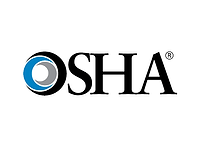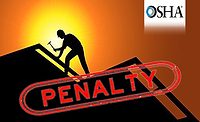Commission Upholds Fall Hazard Citations for Georgia Roofing Job

Photo by Bill Oxford on Unsplash.
The U.S. Occupational Safety and Health Commission has maintained that a Georgia company acting as general contractor for a residential roofing project will face citations for fall hazards violations.
In an order released June 12, the commission determined Norcross-based Fama Construction did not exercise “reasonable care” during a job, upholding citations issued by the Occupational Safety and Health Administration. The company faces a total of $68,344 in penalties.
The citations stem from a job that took place in March 2019. At the time, OSHA inspectors observed workers moving shingle packets on the roof of a townhome about 25 feet above ground without fall protection. Workers were also observed not wearing hardhats while operating a shingle elevator.
OSHA determined the nature of the roofing work exposed Fama’s subcontractors to fall hazards as well as potentially injuring workers on the ground with falling shingles. Fama has been inspected at last seven times since 2013, and in each inspection, OSHA issued a fall hazard violation, some of which involved the subcontractors involved in the March 2019 job.
“Therefore, even though Fama’s subcontractors were experienced, they had a history of safety violations,” the order states. “Thus, more frequent inspections were required since Fama knew its subcontractors had a history of non-compliance.”
In lieu of frequent inspections, Fama had changed its policy by 2019, ending its training program and halting safety inspections of worksites. The ruling says Fama admitted it doesn’t conduct safety inspections at its worksites.
Fama contested that it was neither the employer of the workers exposed to the fall hazards, nor was it liable as a controlling employer because “it was not the general contractor, [and not] the employer with general supervisory authority over the worksite.” It instead relied on the subcontractors to handle their own safety measures. The secretary of labor claimed that Fama was, at minimum, a controlling employer of the worksite.
“Given the nature of the work involved, the scale of the project, and history of safety violations by Fama’s subcontractors, the court concludes there is no genuine dispute that Fama did not satisfy its secondary role as a controlling employer,” the order states in part.
Fama also argued an infeasibility defense, wherein a company “must prove: (1) means of compliance prescribed by the standard are technologically or economically infeasible and (2) there are no feasible alternative means of protection.” Fama said it would have to hire an additional supervisor at a cost of $50,000 per year, which it claims would cause it to go out of business.
The commission sided with OSHA, agreeing that Fama didn’t meet the burden of proof required to show there would be “no feasible alternative means.”
Looking for a reprint of this article?
From high-res PDFs to custom plaques, order your copy today!







